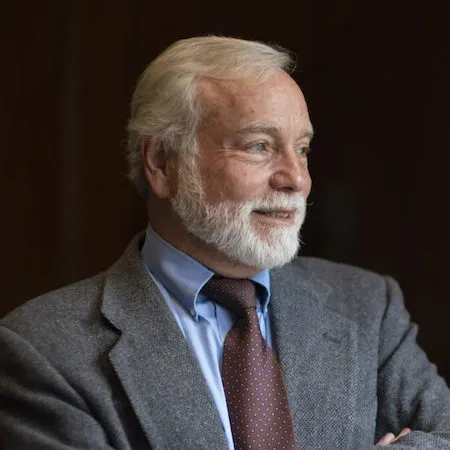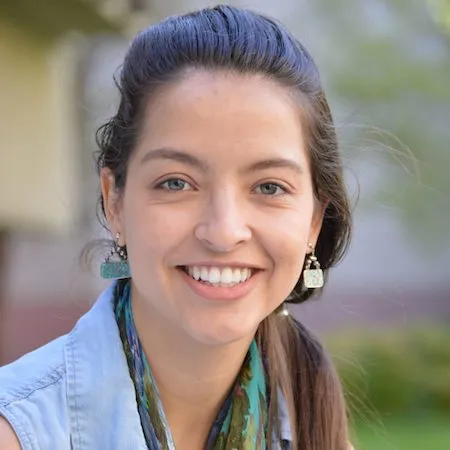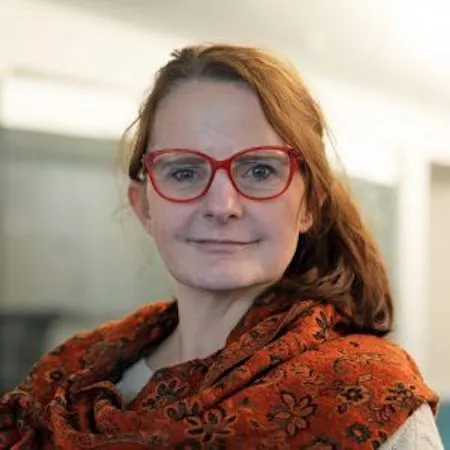Register to attend the panel discussion and following reception, here.
SESYNC seminars are open to all interested attendees. Join us in Annapolis!
The National Socio-Environmental Synthesis Center, funded through an award to the University of Maryland from the National Science Foundation, is a research center dedicated to accelerating data-driven scientific discovery at the interface of human and ecological systems. Visit us online at www.sesync.org and follow us on Twitter @SESYNC.
Presenters

Fred Gould
Dr. Fred Gould is Professor of Entomology, Co-Director of the Genetic Engineering and Society Center of North Carolina State University, and member of the U.S. National Academy of Sciences. Fred is a pioneer in linking insect ecology and population genetics to understand pest evolution, including the sustainable use of insect resistant crops and genetically engineered agricultural pests. His team develops strategies for using engineered insect vectors of pathogens to decrease human disease. He recently chaired the National Research Council's (NRC's) committee on “Genetically Engineered Crops...

Fred Gould
Dr. Fred Gould is Professor of Entomology, Co-Director of the Genetic Engineering and Society Center of North Carolina State University, and member of the U.S. National Academy of Sciences. Fred is a pioneer in linking insect ecology and population genetics to understand pest evolution, including the sustainable use of insect resistant crops and genetically engineered agricultural pests. His team develops strategies for using engineered insect vectors of pathogens to decrease human disease. He recently chaired the National Research Council's (NRC's) committee on “Genetically Engineered Crops: Experiences and Prospects” and serves on the NRC’s Board on Agriculture & Natural Resources. He received a BS in biology from Queens College and a PhD in Ecology and Evolutionary Biology from the State University of New York at Stony Brook.

Jenna Gallegos
Dr. Jenna Gallegos is a postdoctoral fellow in Synthetic Biology Informatics at Colorado State University. She received her PhD in Plant Biotechnology at the University of California at Davis studying gene expression. Prior to her current position, she was a AAAS Mass Media Fellow at The Washington Post, and on the BioDirect team within Monsanto’s Agricultural Productivity Innovations Organization in Woodland, CA. Her recent paper with Jean Peccoud and colleagues, “Cyberbiosecurity: From Naive Trust to Risk Awareness,” raised important issues of vulnerabilities arising at the interface of...

Jenna Gallegos
Dr. Jenna Gallegos is a postdoctoral fellow in Synthetic Biology Informatics at Colorado State University. She received her PhD in Plant Biotechnology at the University of California at Davis studying gene expression. Prior to her current position, she was a AAAS Mass Media Fellow at The Washington Post, and on the BioDirect team within Monsanto’s Agricultural Productivity Innovations Organization in Woodland, CA. Her recent paper with Jean Peccoud and colleagues, “Cyberbiosecurity: From Naive Trust to Risk Awareness,” raised important issues of vulnerabilities arising at the interface of cybersecurity and biology: “Computers can be compromised by encoding malware in DNA sequences, and biological threats can be synthesized using publicly available data.”

Jennifer Kuzma
Dr. Jennifer Kuzma is the Goodnight-North Carolina GlaxoSmithKline Foundation Distinguished Professor in Social Sciences in the School of Public and International Affairs (SPIA) and co-director of the Genetic Engineering and Society (GES) Center at North Carolina State University. Her research focuses on governance systems for emerging technologies. She serves on the National Academy of Sciences (NAS) Committee on Future Biotechnology Products and Opportunities to Enhance Capabilities of the Biotechnology Regulatory System. She obtained her PhD in biochemistry from the University of Colorado...

Jennifer Kuzma
Dr. Jennifer Kuzma is the Goodnight-North Carolina GlaxoSmithKline Foundation Distinguished Professor in Social Sciences in the School of Public and International Affairs (SPIA) and co-director of the Genetic Engineering and Society (GES) Center at North Carolina State University. Her research focuses on governance systems for emerging technologies. She serves on the National Academy of Sciences (NAS) Committee on Future Biotechnology Products and Opportunities to Enhance Capabilities of the Biotechnology Regulatory System. She obtained her PhD in biochemistry from the University of Colorado at Boulder where she discovered bacterial isoprene production, and holds the first patent for methods for bacterial production of isoprene (bioisoprene). Her postdoctoral work was completed at the Rockefeller University in New York. She holds many leadership positions and has many awards including on for her contributions to the field of risk analysis.

David O'Brochta
Dr. David O'Brochta is a Scientific Program Manager at the Foundation for the National Institutes of Health, and Professor Emeritus in the Department of Entomology at the University of Maryland College Park. As a Program Manager, he is involved in providing technical expertise in the area of gene drive and developing programs that address issues of policy, regulation and governance associated with gene drive research and development. David has been a leader in the development of methods and applications for the genetic transformation of insects. As a professor at the University of Maryland, he...

David O'Brochta
Dr. David O'Brochta is a Scientific Program Manager at the Foundation for the National Institutes of Health, and Professor Emeritus in the Department of Entomology at the University of Maryland College Park. As a Program Manager, he is involved in providing technical expertise in the area of gene drive and developing programs that address issues of policy, regulation and governance associated with gene drive research and development. David has been a leader in the development of methods and applications for the genetic transformation of insects. As a professor at the University of Maryland, he conducted research on the interactions between malaria parasites and Anopheles mosquitoes and developed genetic technologies enabling function genomics of non-model insect systems. A particular research interest of his is centered around the study of transposable elements, ranging from questions concerning their basic biology and aspects of their movement to more applied question concerning their development and use as genome manipulation tools.